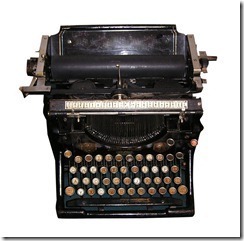Elizabeth Spann Craig's Blog, page 223
November 10, 2010
Word Count
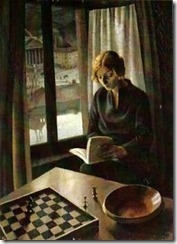 I'll admit that as I'm writing, I keep half an eye on my word count.
I'll admit that as I'm writing, I keep half an eye on my word count.
It used to mess me up to do that. But now, I think it's like checking my speedometer when driving a car—it just helps keep me in line so I don't get into trouble later.
If you're way over or way under the target word count for your genre, it's going to mean some work later on. You don't want to feel like you're adding fluff to a book to get up to the target count and you don't want to feel like you're slashing important scenes, either. Sometimes it's easier just to watch it as you go along.
When I'm done with a first draft, it's usually a short 68,000 words. I write pretty sparely now—it used to be that I'd babble on and on when I was writing and wasn't sure what direction I was going to take the plot next. Now I just stop writing when I get to that point and do some quick brainstorming. Otherwise, I have filler to remove later.
My target is 75,000 words and my manuscript goes right up to that after I add setting, character description, and the small subplots that I love including.
If you're a newer writer, though, it might be better to just write the book you want to write and worry about the word count during revisions. I know that worked better for me while I was getting my feet wet.
I know some writers worry that word count limits creative freedom. But we can write whatever we want and make the book as long we want it….it just might not sell. If our goal is to sell our finished manuscript, at some point word count is going to have to be considered. Unfortunately, even if your book is excellent, it's going to be hard to have it read by an agent or editor if it's too long.
Here are some useful links to consider if you're at the point that you need to take a look at your word count:
Word Count for Novels and Children's Books: The Definitive Post
Think twice before querying your 291,000 word book
A Few Words on Word Counts: How to Beef Up or Slim Down (especially for freelance writers, but some tips that will help novelists, too)
An agent on word counts (and here, where she defends her position)
Writing Nowadays–Word Count Violations and You
How To Get Ahead When You Are Behind On Your Word Count
Do you watch your word count as you write, or is it something you worry about later in the process?
November 9, 2010
Polishing Up a Draft
 Before I emailed the Memphis 3 manuscript to my agent on Monday, I followed a checklist of problems to look for and things to do before submitting the document.
Before I emailed the Memphis 3 manuscript to my agent on Monday, I followed a checklist of problems to look for and things to do before submitting the document.
I tried to read the first five chapters as if I were a brand-new reader for the series. Would it all make sense to someone reading about these characters for the first time?
I made sure I'd sketched out the characters and setting—and not just kept it all in my head and thought I'd written it out.
Readers let me know (they're good about that :) ) that they wanted more chapter breaks. I put in breaks around every ten pages.
I looked for my favorite words that I overuse.
I looked for wishy-washy words that undermine my writing: "I think," "maybe," "I guess," "a little," "some," "seem."
I looked for filler words.
I looked for repetition in the story and repetition in dialogue.
I looked for anything murky that sounded confusing.
I made sure the characters seemed consistent from start to finish (unless I wanted them to change—and I made sure I had good motivation for a change.)
I looked for continuity errors and other boo-boos.
I sketched out a timeline as I read the draft and made sure the story was linear and made sense with the timeline.
What kinds of things do you look for when you revise? And…if you write different genres, do you look for different things?
November 8, 2010
Showing
 Part of my busy weekend last weekend involved travel. :)
Part of my busy weekend last weekend involved travel. :)
I visited San Diego with my college roommate—just to go somewhere that was scenic and relaxing, that we hadn't visited before.
But I needed to finish my manuscript and send it to my agent yesterday—so I used every minute of that five hour flight to and from San Diego to Charlotte, to work. I inserted place description, character description, chapter breaks, and a full subplot. I've a feeling, actually, that I might have driven the folks beside me nutty with my typing.
But after ten total hours of flying, I had a manuscript that was ready to turn in.
Both flights were totally packed with people—not a seat was free. And the flight to California from North Carolina was stressful at times.
When we were waiting at the gate in Charlotte to board the plane, there was a toddler of about 13-14 months who was absolutely pitching a fit.
I think every one of the passengers was praying that we wouldn't be seated next to that baby, or near him, for the five hour flight.
Fortunately, I wasn't. But that child had quite a set of lungs on him. His wailing---no, really, it was screaming—lasted for the entire fifteen minutes before boarding the plane and a full hour after we got on. He certainly had stamina.
What was interesting to me was the reaction of the other passengers on the plane. And what that reaction seemed to say about them.
There were some people who just looked stoically miserable.
There were some passengers who turned to look angrily back—at the parents.
There was a woman who looked concerned about the baby.
There were a couple who somehow managed to go to sleep, making me wonder why they were exhausted enough to doze during that racket.
I saw one young woman in her early twenties who put down her Cosmo magazine, looked back toward the baby with great irritation and rolled her eyes at me when she saw me looking at her.
I saw several people plug their ears with earbuds and listen to their iPods and not think twice about it.
I heard one elderly lady behind me tell the person next to her, "The poor thing. He doesn't understand what's going on."
I heard one person say, angrily, that the parents shouldn't fly a child that age for that length of time.
For me? I just worked right through it for the hour. Anyone could correctly draw the conclusion that I had kids of my own, a lot of work to do, and was immune to the noise.
The nice thing about showing character through reaction is that we can actually let the reader draw their own conclusions—even incorrect ones. That gives us room to write surprises into our stories. We can lead the reader to believe one thing about a character and make a surprising revelation about them later.
There were a few people on the plane who I figured weren't parents—just solely based on their angry reaction. But my impression could easily have been wrong.
They might just be really impatient people who would be just as upset if their own babies were screaming like that.
They might have just been unusually tired or flying to a stressful situation—like a family member in the hospital. Maybe a situation like that one wouldn't ordinarily have fazed them, but did this one time.
Do you use character reactions to a situation to show something about them? Do you ever purposefully give a misleading impression of a character? How else do you give readers clues to a character's personality?
November 7, 2010
Deciding Which Story to Write
 A few times lately, I've heard writers who've gotten a great idea for a story—or a fully-formed character—at an inconvenient time. Usually right when they're in the middle of another book.
A few times lately, I've heard writers who've gotten a great idea for a story—or a fully-formed character—at an inconvenient time. Usually right when they're in the middle of another book.
The phenomenon actually has a name: Shiny New Idea Syndrome (SNIS).
The question that comes up, of course, is whether you should continue writing the book you were working on—or whether you should start writing the new idea you've had…the one you're excited about.
I've had this happen a couple of times in the last year—I've gotten ideas for new series or gotten ideas for things that wouldn't fit in well with the current series I'm writing.
Because I'm under contract for the books I'm writing (and have already been paid for them), then I didn't have a choice about which to write. I just spoke into a voice recorder all the ideas I had connected to the new idea and then saved it for later and continued working on the current manuscript.
But it seems to me that there are some questions to ask yourself if you've gotten a case of SNIS:
What's your goal—right now—with writing? Publishing? Writing for your own enjoyment?
If you're writing to please yourself, decide which story you think you'll take the most pleasure in writing—is it a turbulent story that will actually be cathartic? Something light and humorous?
If you're writing for publication, which story is more marketable?
Which story is fuller-formed and better-realized?
Which requires more research (and do you have the time to do it?)
Has this happened just because you've reached a difficult spot in your current manuscript? Could you jot down your idea and just brainstorm ways to work through the rough part? And remind yourself that it's fine to write a horrible or disorganized first draft?
Could you put your current manuscript down for a couple of weeks and work on the new manuscript? You may find that the new manuscript isn't all that exciting or that you return to the old one with fresh eyes and can easily polish off the first draft on it.
If you're in the middle of revisions for the old manuscript, you could work on both books at once (I frequently have to do this.) That way you're doing something creative (penning a first draft) while doing something a little more mechanical (editing/revising.)
I think the danger in putting down an unfinished manuscript is that we won't return to it. Or that we're setting a precedent with ourselves that it's okay to leave a manuscript unfinished.
Have you ever been struck by Shiny New Idea Syndrome? How did you handle it?
November 6, 2010
Twitterific
![Terry3_thumb[1]](https://i.gr-assets.com/images/S/compressed.photo.goodreads.com/hostedimages/1380443926i/1408981.png) Here are writing links that I've posted to Twitter for the past week.
Here are writing links that I've posted to Twitter for the past week.
If you're looking for a particular topic, just plug in your keyword into the search box at the top left-hand corner of the blog (on the black header right above my blog name…next to the Blogger symbol…the small search window is next to the magnifying glass) and the roundup with your subject will come up. To narrow your search down on the page, do a CTRL+F, type your subject, and hit enter.
Facebook: Personal vs. Professional: http://dld.bz/4Evn
Elements of a Scene: http://dld.bz/4Evb
Why Do eBooks Cost So Much? (A Publisher's Perspective): http://dld.bz/4EuW
Blogging 101: How to Get Feed Subscribers: http://dld.bz/4EuV
How Do You Know When Your Book is Cooked? http://dld.bz/4EuR
So Your NaNoWriMo Novel Sucked--Why You Still Gained: http://dld.bz/4Eue
You Don't Get to Choose Whether You're a Writer: http://dld.bz/4Et7
The iPad for writers: http://dld.bz/4Etn
A tip for starting out our day--and our writing--with momentum: http://dld.bz/4MRC
Do novels need to be nice (vs. gritty?) http://dld.bz/4Etb
What your profile pic really says about you: http://dld.bz/4BKM
3 Novel-Writing Alternatives to NaNoWriMo: http://dld.bz/4BKq
Storyboarding on a shoestring--freebies for writers: http://dld.bz/4BKd
Writing the Story Premise: http://dld.bz/4BGe
The Skill of Critiquing Part One: Guidelines for Etiquette: http://dld.bz/4BFX
How To Create Believable Characters: http://dld.bz/2zzn
Why and how one writer decided to self-pub: http://dld.bz/4BFQ
Myst. Lov. Kitchen: An Easy Take on a Classic—Chicken Pot Pie http://bit.ly/9HB8NY @CleoCoyle
One writer's pet peeves for writing: http://dld.bz/4BEH
Book Marketing and Book Publicity: Why a Book's Subtitle is So Important: http://dld.bz/4BE6
Taking Control of Your Twitter Log-in Info: http://dld.bz/4BEy
The #1 Reason Every Blogger Should Use Disqus: http://dld.bz/4BEt
Food, wine, and drink in our writing: http://dld.bz/4EtU
Character Planning: A Little About Backstories and Inner Demons: http://dld.bz/46um
How To Prep Yourself and Your Schedule For NaNoWriMo: http://dld.bz/46ua
The Five Stages of Publishing: http://dld.bz/46tW
Mystery Writer's Guide to Forensic Science - Poisons III: http://dld.bz/46tG
How to write, produce and market an ebook: http://dld.bz/46tx
Anatomy of a Best-Selling Novel–Structure Matters (Part One): http://dld.bz/46sS
10 resources for writers: http://dld.bz/4BCY @Buddhapuss
Congrats to my friend Cleo on her pb release! Holiday Grind Pub Party: 3 fave @CleoCoyle Holiday #Recipes & Giveaway: http://nblo.gs/9Yy7M
Steampunk Character Type: The Savant: http://dld.bz/46sE
On writing across formats: http://dld.bz/459s
e-books 101: http://dld.bz/459c
5 Reasons Nonfiction Writers Need a Book Proposal: http://dld.bz/458F
One writer's NaNo tips: http://dld.bz/458c
7 rules of blogging (for writers): http://dld.bz/457E
No NaNo? No Problem: 5 Other Ways to Put 1667 Words-a-Day to Work: http://dld.bz/457A
5 Beliefs That Hinder Your Organizational Skills: http://dld.bz/4zNw
Could you give writing up? Are writers gluttons for punishment? http://dld.bz/4zNv
Alexa rank: What you need to know as a new blogger: http://dld.bz/4zNf
Communication Lessons Learned From The 2010 Midterm Elections: http://dld.bz/4zMY
Want to Write? First, Find Someone Who Cares: http://dld.bz/4zME
Best tweets for writers (wk ending 10-29): http://dld.bz/4623
Myst. Lov. Kitchen: Christmas Cookie Contest! http://bit.ly/abMI8n @CleoCoyle
WhenYou Have an Offer From a Publisher...But You Don't Have an Agent: http://dld.bz/4zMm
30 Days to a Stronger Scene: http://dld.bz/4zHZ
Writing For Publication-101: http://dld.bz/4zHN
Creating word pictures for your readers: http://dld.bz/4zHG
10 Resources and Tips for Character Creation: http://tinyurl.com/2ayeo5d @Buddhapuss
Tips for pacing your novel: http://dld.bz/4zH5
What Motivates Your Character? http://dld.bz/4zHv
3 Mistakes Writers Make in the Quest for Publication: http://dld.bz/4zHp @jodyhedlund
A Whale, A Gun And A Doll House: A Writer's Reading Diet And Why It Is Crucial To Stray: http://dld.bz/4zGM
Overcoming Resistance (A.K.A. Fear): http://dld.bz/4wvZ @ultraswan
Three Elements Every Novel Needs: http://dld.bz/4wvm
Free rhyming dictionary online: http://dld.bz/4wvk
Tips for bringing your story back from the dead: http://dld.bz/4wve
Improper use of emotion words in fiction writing: http://dld.bz/4wu7
5 Techniques for Managing Group Critiques: http://dld.bz/4wuw
Juxtaposition: The Power of the Unexpected in Fiction: http://dld.bz/4wuv
Tips for creating well-written, focused scenes: http://dld.bz/4wuu
How to Get Motivated in the Morning: http://dld.bz/4wun
Casting characters for our book: http://dld.bz/4b28
13 Places to Find Inspiration: http://dld.bz/3XPz
Putting on a Reader Hat to Revise: http://dld.bz/3XPm
Setting–Adding Dimension to Your Fiction: http://dld.bz/3XPd
NaNoWriMo Workshop – Point of View: http://dld.bz/3XPa
Captivating words: http://dld.bz/3XNj
Why do writers do it? http://dld.bz/3XNh @jodyhedlund
Front-loading your work as a writer: http://dld.bz/3XMw
The YA View: What We Like in Our Books (and What We Don't): http://dld.bz/3XJT
November 4, 2010
Short Blogcation
Hi everybody!
I've got a real busy Friday and Saturday planned—and will be putting the finishing touches on Memphis book 3 before sending it to my agent on Monday. I'll be back Sunday with my Twitterific post for the week, though. Hope you'll have a great weekend!
November 3, 2010
Writing is a Crime—by Kathryn Casey
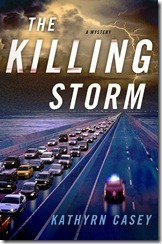 It's pretty much just one of those things. The truth is that I never consciously decided to become a crime author. Back in the eighties, working for magazines, the editors needed someone to cover sensational cases. I was the new kid, the one who needed to please, so my hand went up at a lot at meetings. You need someone to cover that? I'm your gal. Of course, I'll do it! No problem!
It's pretty much just one of those things. The truth is that I never consciously decided to become a crime author. Back in the eighties, working for magazines, the editors needed someone to cover sensational cases. I was the new kid, the one who needed to please, so my hand went up at a lot at meetings. You need someone to cover that? I'm your gal. Of course, I'll do it! No problem!
Before long, I gained a reputation for digging into cases, not being afraid to knock on doors and ask questions. So for twenty years, that's what I did, writing articles for hometown then national magazines, much of the time on murder and mayhem. It's perhaps only natural then that when my gaze turned to books I focused in on crime writing. We've all heard: Write what you know. What I knew are cops, killers, and lawyers.
At first, I wrote true crime books, six of them so far. It turned out it was quite an education. There's nothing like sitting across a desk for a homicide detective as he explains how he tricked a bad guy into confessing, or across a counter from a killer describing in stark detail how he cornered his prey and pulled the trigger. When that happens, it leaves an impression, and over the decades, my mind filled up with memories of squad rooms, courtrooms, and crime scene photos.
So, about six years ago, when I decided to write fiction, the truth is I had a lot to draw on. My research, to some extent, was done before I sat down at the computer. Still, there were so many decisions to make. I needed a main character, a protagonist to build my mystery series around. Before long, because I wanted her to travel my home state, I decided on a Texas Ranger. I made her a profiler simply because I find psychology fascinating.
The result is Lieutenant Sarah Armstrong, my heroine and my constant companion for the past few years. I believe she lives somewhere in the back of my brain, waiting to take over if I give her the chance. She's a pretty powerful personality, more so than I am, I'm afraid.
What I gave Sarah to play with are all those memories from my past, my encounters with real life good guys and bad guys, victims and prosecutors. When I sit down to write, they're all at her disposal, and so far, she hasn't run out of material.
My days are fairly regimented. I walk past the laundry and the dishes piled up in the sink, sit down at my computer, and stare at the most frightening of all sights, a blank page on a computer screen. Before long, the germ of an idea pops up, a barebones plotline or a character, and slowly I start to write. I carry with me all Sarah has done in the past: her adventures in the first book, Singularity, when she hunted a serial killer; the day she nearly died protecting a teenage pop star from a stalker in Blood Lines. Along with Sarah comes the family I gave her, a mother, Nora, who bakes when nervous, copious amounts, and a daughter, Maggie, who mourns her dead father and studies the stars.
Once I'm writing the ideas come at a steady pace. Characters pop up before I understand why they're there at times. Somehow, as the book develops, they always seem to have a purpose. If I get stuck, I walk around the block. If I'm really stuck, I take a nap. Along the way, I'm looking for those twists and turns to propel Sarah through the pages of the book, ways to speed up the clock and build the tension. In the third Sarah Armstrong mystery, The Killing Storm, a hurricane puts on the pressure. A child has been kidnapped. He's in the hands of a madman. And Sarah knows she has to find the boy before the storm hits, or all will be lost.
So that's my tale, that of a girl who grew up wanting to write, one who became a crime writer mostly by accident and discovered she loves every minute of it.
 Kathryn Casey is an award-winning journalist, the author of six highly acclaimed true crime books, and the creator of the Sarah Armstrong Mystery series, published by St. Martin's Minotaur. The latest book in the series is The Killing Storm (November 2010). Her Web site is: www.kathryncasey.com
Kathryn Casey is an award-winning journalist, the author of six highly acclaimed true crime books, and the creator of the Sarah Armstrong Mystery series, published by St. Martin's Minotaur. The latest book in the series is The Killing Storm (November 2010). Her Web site is: www.kathryncasey.com
Thanks so much for coming by today, Kathryn! I read a great review for "The Killing Storm" and it's on my TBR list. :) Thanks for sharing your writing process with us.
November 2, 2010
On Momentum
I do a lot of skimming as I'm looking for blogs to tweet on Twitter.
Sometimes I stop and read the post carefully—and that was the case with a blog post on Work Awesome that I came across the other day.
The article's author, Oleg Mokhov, made a great point about starting the day out with good momentum. He recommends leaving the last task of the day unfinished so that you can quickly pick up where you left off the next day and polish the task off quickly—thus racking up a speedy 'win' to set your day in motion.
He recommends outlining each step needed to complete the task the day before—so there's no ambiguity that could lead to procrastination. He calls that procrastination start paralysis.
I've always used this idea with my writing—I never leave off the day with a scene that I'm not looking forward to writing (a complex scene, a scene with lots of characters, etc.). I try to end my writing time by leaving off at a spot where I'm excited about picking up the next day. Then I sketch out a really quick mini-outline of what I'm planning on writing the following day. This means that I'm eager to pick up my book the next day and don't put it off.
But it seems to me that it would also help my productivity to quickly complete off a non-writing-related task the next day. Some mornings I wake up already feeling deflated, thinking about all the work I have in store for the day. It would probably help my writing out if I completed a task I started the day before—I'd feel encouraged by my progress right at the beginning of the day.
I have a suspicion that one of the things that grabbed me about this article, when I was skimming it, is the Hemingway quotation at the bottom. :)
The best way is always to stop when you are going good and when you know what will happen next. If you do that every day…you will never be stuck.
Hemingway's quotation was parsed by another blog, The Second Act, some time back. They listed the benefits to this method:
You :
Avoid being stuck Keep the momentum going Start your day by the rewarding work of finishing a task Boost your self-confidence and motivation levels before starting the next task End your day on a high note Put your brain to purposeful rest when you stop working Allow you subconscious to work profitably on it = the bigger picture = your goal.Again, this seems to work just as well with non-writing tasks as much as meeting our daily writing goal.
I like the idea of starting out the day with a win. How do you build momentum at the start of your day? Or are you finding it later on?
November 1, 2010
Food, Wine and Drink by Stephen Tremp
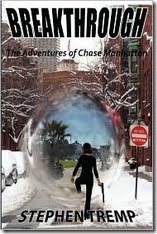 Never has food and wine been so popular among American culture. Cable and network TV is filled with cooking, wine, and travel shows. Food and drink play very important roles in my books. I think of them as inanimate, yet intimate characters in supporting roles. They have the power to define, distinguish, and differentiate characters. They give characters character and offer cultural insights into who they are.
Never has food and wine been so popular among American culture. Cable and network TV is filled with cooking, wine, and travel shows. Food and drink play very important roles in my books. I think of them as inanimate, yet intimate characters in supporting roles. They have the power to define, distinguish, and differentiate characters. They give characters character and offer cultural insights into who they are.
Example: Six misguided M.I.T. grad students form the group of antagonists, led by Nicholas Fischer Jr. and his girlfriend Staci Bevere. Nicky is a health food nut, Staci, a junk food junkie. Staci's basic food groups consist of refined sugar, processed carbs, and coffee. Nicky won't touch any of the three. Minor conflict is introduced just sitting down to eat together.
Food, beer, and wine make their appearance throughout Breakthrough. I can add coffee and tea to the mix too. There is usually something significant occurring in the plot when characters are eating together.
Visiting Real Restaurants and Ordering Off Menus: if you are using real establishments like I do in your books, take the time to perform your due diligence in research. Not only do I incorporate existing restaurants into my books, I also visit them to eat and drink the same meals my characters. It's a tough job but somebody has to do it.
Example: The protagonists are made up of six southern Californians led by Chase Manhattan and his girlfriend Susan Anderson. They meet at a couple of local hangouts in Laguna Beach, Hennessey's Tavern and the Marine Room Tavern. Hennesey's is where Chase, Susan, and the rest put the pieces of the puzzle together, identify the players from M.I.T., and decide to follow through with a plan to destroy this breakthrough discovery rather than walking away.
There is an advantage to using actual establishments. My book takes place in two setting; metropolitan Boston and Orange County, CA. People who live or vacation in these places may recognize the establishments. There is a sense of familiarity that engages the reader.
Get a Feel for the Ambiance: There are numerous ways to capture the ambience of a restaurant. Eat there. Visit their Web site. I like to read actual customer reviews from the Internet. Set the ambience before the characters enter the establishment. I took this information from Ti Amo's Web site:
"Modeled after an authentic Italian villa, the restaurant featured stone tablet menus, faux and fresco artisan-plastered walls, heavy fabrics, candelabras, and soothing lighting. Chase had made reservations for six thirty p.m.—just enough time to get a good seat by the fireplace upstairs before the restaurant filled to capacity."
Have characters order food and wine right off the menu. Example: Chase paired Farfalle con Pollo Affumicato with sun-dried tomatoes in an oven-roasted tomato brandy cream sauce with a bottle of Tenuta dell'Ornellaia Bolgheri Ornellaia.
After fine dining at Ti Amo, Chase balances out the night with his girlfriend Susan Anderson at a not so great yet very popular Marine Room Tavern for more drinks and live music. Again, set the ambiance before they enter:
"Chase didn't have to spend much time looking for parking in Main Beach since it was still February—off-season for tourists. He found a spot two blocks north from Marine Room Tavern. They walked arm-in-arm to keep warm as the temperature dropped to the mid-sixties. Chase led Susan up to a row of choppers, all Harleys.
"The crowd sounds loud and raucous," Susan said as they approached the bar.
"No worries - fights are rare here. This crowd consists mainly of lawyers, doctors, accountants, and heads of companies. By day they're successful in the business world. But after hours, they're living a dream they'd longed for since they sat on their first motorcycle. Let's go in."
Pairing: You can pair restaurants with characters. If you introduce minor characters at restaurants, have them contribute in some way. Otherwise, you might end up with character clutter. Example: The waiter Antoine at Ti Amo provides Chase the one vital piece of information that helps him identify the players at M.I.T.
Caveat: DO NOT portray a real establishment (or real living person for that matter) in a negative light. We live in a very litigious society and you may be sued. Example: I originally wrote a scene were Nicky and Staci had a lousy meal served by a washed up waitress with a bad attitude at a Denny's. I changed the name to a fictitious Jimmy's Diner to avoid potential conflict.
I use meal time throughout Breakthrough (and Opening and Escalation) to let the characters come together, plot their schemes, attacks, and counter attacks. This is where they discover important things that help them make decisions and move forward. Whether they are eating in their kitchen, a sit down restaurant, or going through In-N-Out drive through, restaurants, food, and wine can help define characters, introduce conflict, and move the story along.
Please join me tomorrow as I visit Karen McGowan at Coming Down From The Mountain as we talk about Marketing and Promotion. As always, thanks for stopping by.
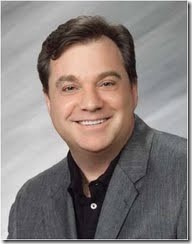 Stephen Tremp is author of the action thriller Breakthrough. You can visit Stephen at Breakthrough Blogs.
Stephen Tremp is author of the action thriller Breakthrough. You can visit Stephen at Breakthrough Blogs.
Thanks so much for coming by today, Stephen! You know how I love my food and drink in a book. I'm looking forward to reading my copy of Breakthrough.
October 31, 2010
Technology and Writing
 I heard from a few folks regarding the fact that there wasn't a post from me on Saturday. Which is nice because y'all know I always post, every day…unless I say I'm not going to. It's really great to be missed!
I heard from a few folks regarding the fact that there wasn't a post from me on Saturday. Which is nice because y'all know I always post, every day…unless I say I'm not going to. It's really great to be missed!
But I was planning on posting on Saturday (I'd already loaded the blog post for yesterday, but Saturday's I was planning to upload on Friday evening.) Our family went to the mountains, though, for the weekend. It was gorgeous up there at the cabin—but it wasn't on WiFi. And we had to have actual directions from the owner of the house because the location wasn't on GPS.
Yes, I started having heebie-jeebies because I'm apparently an internet addict. My smart phone had an intermittent connection, but not for very long.
I was a big girl and dealt with it. I ended up playing lots of ping pong and air hockey (poorly) with my husband and kids, sitting by a roaring fire, watching the night sky with a telescope, and hiking. We had a really fun, unplugged time.
It's funny, though, how easy it is to forget that you're not wired. We were heading to South Mountain State Park with our corgi and I said, "Hey, let me check real quick and make sure dogs are allowed." Of course, I went right to my computer—which wasn't online.
Back at home last night for trick or treating, my husband and I were watching the zombie movie Dawn of the Dead. There's a moment where they're at the mall and the cop in the movie communicates with another non-zombie on the roof…with white boards.
It bothered me. Wouldn't you maybe exchange cell phone numbers on the white board and then call or text each other? I know the cell phones go dead after a while, but still. Where were all the cell phones?
It bothered me enough to look up when the movie came out—2004 was the release date. We were definitely all texting and cell phone addicted six years ago. I could see a movie set in the 90s not using cells…but the lack of mobiles in the film really bugged me.
I do use technology to a certain degree in my books, but I've been very reluctant to do it. I felt like social media was still possibly on the trendy side when Pretty is as Pretty Dies came out, but it's going to be mentioned in Finger Lickin' Dead—briefly. Facebook has a slightly more significant role in Memphis book 3 since I've decided that Facebook seems like a pretty solid format.
I've always been really conscious about dating my books. That's because they're at libraries and I don't want someone to pick them up in a few years and roll their eyes over the reference to something that no longer exists (VCRs, etc.) that will date the book.
But now I'm starting to get concerned the other way, too. Won't it date my books more if technology is ignored completely? Hasn't it become such an integral part of our lives that it needs a mention—even in a vague way? So maybe I won't refer to an iphone (the trendiness factor), but I'll definitely refer to a cell phone (generic mention).
If I can go to the top of a mountain and assume, without even thinking about it, that I can get state park information on my laptop or smart phone…then technology has really integrated into everything I do.
I'm going to try to reach a balance where the technology in my books is also integrated—where it doesn't stand out for being outdated and where it doesn't stand out in its absence.
How do you approach technological references in your books?
And please join me tomorrow when Stephen Tremp will be joining me with a post on "Food, Wine, and Drink." Hope you'll pop by. :)

